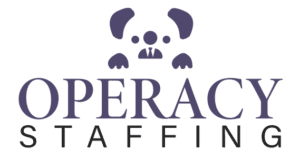
Introduction
In the world of entrepreneurship, both virtual assistants (VAs) and small business owners face numerous challenges while trying to build their businesses. While success stories often steal the limelight, the truth is that setbacks and failures are an inevitable part of this journey. However, embracing failure and using it as a learning experience can be the key to eventual triumph. In this article, we will explore examples of the importance of accepting setbacks, the life lessons they teach, and how VAs and small business owners can turn these experiences into stepping stones towards success.
1. Redefining Failure: A Pathway to Growth
Redefining failure as a pathway to growth is a fundamental mindset shift that can revolutionise how VAs and small business owners approach setbacks. Rather than viewing failure as a definitive endpoint, it should be seen as a natural part of the entrepreneurial journey. Successful entrepreneurs recognise that failure is an opportunity to gain valuable insights, learn from mistakes, and build resilience. By understanding that setbacks complete failure are stepping stones rather than roadblocks, entrepreneurs can maintain a positive outlook, remain motivated, and keep moving forward with new jobs despite challenges. This mindset shift enables them to bounce back quicker, adapt to changing circumstances, and ultimately find success.
Failure shouldn't be perceived as a reflection of one person's abilities or potential. Instead, it should be embraced as a necessary aspect of the growth process. Each setback provides an opportunity to reassess strategies, identify weaknesses, and explore innovative solutions. When entrepreneurs accept failure as part of the learning curve, for example, they become more open to experimenting with new ideas and approaches, which can lead to breakthroughs. By focusing on growth and progress, VAs and small business owners can extract valuable lessons from failure and use them as fuel for future success.
2. Cultivating Resilience and Perseverance
Resilience and perseverance are indispensable traits that can determine an entrepreneur's ability to overcome setbacks. Building resilience involves developing emotional strength and mental toughness to weather the ups and downs of business. Every setback can be emotionally draining, but by developing resilience, VAs and small business owners can cope with disappointments more effectively. Additionally, perseverance is the driving force that keeps entrepreneurs committed to their vision even when faced with obstacles. It is essential to stay focused on long-term goals and be willing to keep pushing forward, even when immediate results are not forthcoming. Cultivating resilience and perseverance enables entrepreneurs to turn failures into valuable learning experiences and motivates them to try again until they succeed.
Resilience is not an inherent trait but a skill that can be developed through practice and self-awareness. When faced with a setback, or business failure, entrepreneurs should allow themselves to acknowledge their emotions and frustrations without dwelling on them. Instead, they should focus on analysing the situation objectively, seeking constructive feedback, and finding solutions to move their company forward. Perseverance complements resilience by instilling the determination to keep going, even in the face of repeated failures. Successful entrepreneurs often encounter multiple setbacks before achieving their goals, but it is their unwavering perseverance that helps them overcome these challenges and ultimately succeed.
3. Learning from Mistakes
One of the most powerful aspects of embracing failure is the opportunity it provides for learning from mistakes. Every setback presents a chance to critically analyse what went wrong and why. By conducting a post-mortem analysis, VAs and small business owners can identify areas that need improvement, whether it's a flawed strategy, insufficient preparation, or a misunderstanding of customer needs. This self-reflection and introspection help entrepreneurs gain valuable insights, which can be implemented to enhance future endeavours. Furthermore, learning from mistakes fosters a culture of continuous improvement, where setbacks become valuable stepping stones towards greater success.
Entrepreneurs should view mistakes as feedback rather than as personal failures. By adopting a growth mindset, they can see failures as opportunities for self-improvement and progress. Learning from mistakes requires humility and a willingness to accept constructive criticism. Seeking opinions and feedback from customers, mentors, or peers can provide valuable perspectives that may not be immediately apparent. In the face of setbacks, it is crucial to avoid placing blame on external factors and take responsibility for actions. Embracing a learning-oriented approach ensures that each setback becomes a valuable experience that contributes to an entrepreneur's overall development and success.
4. Adapting to Market Changes
The business landscape is ever-changing, and setbacks can often be the result of unforeseen market shifts. Embracing failure allows entrepreneurs to remain adaptable and responsive to these changes. Instead of being rigid in their approaches, VAs and small business owners who embrace and manage failure can see it as a signal to reassess their business model and strategies. They can pivot quickly, make necessary adjustments, and cater to evolving customer demands. Being adaptable in the face of setbacks not only ensures survival but also positions entrepreneurs to take advantage of new opportunities that arise amidst the changing market dynamics.
In an increasingly dynamic and competitive market, successful businesses that fail to adapt risk becoming obsolete. The ability to recognise and respond promptly to shifts in consumer behaviour, industry trends, or technological advancements is crucial for sustained success. Adapting to market changes requires continuous monitoring and analysis of relevant data to identify emerging patterns and potential disruptions. By incorporating a culture of adaptability into their business, entrepreneurs can view setbacks as early warning signs and seize the chance to innovate and evolve.
5. Seeking Guidance and Support
Entrepreneurship can be a lonely journey, and setbacks can feel overwhelming when faced in isolation. However, seeking guidance and support can provide immense value and encouragement. Mentors, industry peers, and business communities offer a wealth of experience, expertise and insights to help entrepreneurs navigate through challenging times. Interacting with others who have faced similar setbacks and achieved success can provide fresh perspectives, tips for innovative solutions, and emotional support. Moreover, engaging with a supportive community can serve as a reminder that setbacks are a common part of the entrepreneurial process and that success often comes to those who persevere and seek help when needed.
Mentors play a significant role in providing guidance and sharing their own experiences of overcoming failures. Their wisdom can help entrepreneurs avoid common pitfalls and make more informed decisions. Furthermore, seeking support and advice from a network of like-minded individuals fosters a sense of camaraderie and accountability. By sharing their setbacks and successes and learning from others, VAs and small business owners can discover that they are not alone in facing challenges. Such a network can provide encouragement during tough times and inspire entrepreneurs to keep moving forward with renewed energy.
6. Embracing an Experimental Mindset
An experimental mindset is an entrepreneurial approach that involves testing different strategies with new customers, products, or services to gauge their success. By embracing this mindset, VAs and small business owners can overcome the fear of failure and become more comfortable with taking calculated risks. Instead of viewing each attempt as a potential failure, they can see it as an opportunity to learn and refine their approach. An experimental mindset encourages entrepreneurs to iterate, adapt, and innovate until they find what works best for their own business alone. This willingness to experiment and learn from the outcomes can lead to breakthroughs and transformative growth.
Embracing an experimental mindset involves fostering a culture that encourages curiosity, creativity, and a willingness to challenge the status quo. Rather than being discouraged by initial failures, entrepreneurs can see them as essential steps in the process of refining their strategies. An experimental approach also enables VAs and small business owners to test assumptions and validate ideas before committing significant resources. By implementing small-scale experiments, they can gather valuable feedback and data that inform their decisions, increasing the likelihood of success when scaling up their operations. The iterative nature of experimentation allows for continuous improvement and optimization, ensuring that setbacks become temporary roadblocks on the path to long-term success.
7. Celebrating Small Wins and Progress
While embracing failure is essential, celebrating small wins and progress along the way is equally important. It's easy for entrepreneurs to become fixated on their setbacks and losses, neglecting to acknowledge the positive strides they make. Recognising and rewarding oneself for even the smallest accomplishments can boost morale, maintain motivation, build trust and foster a positive outlook. Celebrating progress reminds VAs and small business owners that setbacks are just temporary obstacles in a broader journey towards success. By taking time to appreciate achievements, entrepreneurs can build self-confidence and stay focused on their ultimate vision.
Celebrating small wins doesn't mean waiting for significant milestones to acknowledge progress. Instead, it involves recognising and appreciating the incremental steps that contribute to the overall growth of the business. Every successful client interaction, positive customer feedback, or process improvement deserves acknowledgment. By acknowledging these achievements, entrepreneurs reinforce positive behaviour and build a culture of success within their business. Moreover, celebrating small wins serves as a source of motivation during challenging times, reminding entrepreneurs of their resilience and ability to overcome setbacks.
8. Building a Supportive Work Culture
The work culture within a virtual assistant's team or a small business can significantly impact how setbacks are handled and transformed into opportunities for growth much success. Building a supportive work culture that encourages open communication, collaboration, and learning is essential. When team members feel safe to share their experiences, ideas, and even failures, it fosters an environment of trust and innovation. In such a culture, setbacks are seen as shared experiences rather than individual shortcomings, and everyone works together to find solutions and move forward. By prioritising a supportive work culture, VAs, clients and small business owners can create a cohesive team that thrives even in the face of challenges.
9. Leveraging Technology and Data
In today's digital age, technology and data play a crucial role in business decision-making. VAs and small business owners can leverage technology and using data analytics to identify patterns, analyse performance metrics, and gain insights that help them understand the root causes of setbacks. By utilising tools such as analytics software, customer feedback systems, and market research platforms, entrepreneurs can make data-driven decisions and identify areas for improvement. Data-driven insights also enable them to anticipate potential challenges and proactively address them. The ability to adapt and make informed decisions based on data can turn setbacks into opportunities for strategic growth and achieve long-term success.
10. Continual Learning and Professional Development
The journey of a virtual assistant or a small business owner is a constant learning process. Embracing failure means understanding that there is always room for improvement and growth. Continual learning and professional development are critical to staying relevant in a rapidly changing business landscape. Entrepreneurs can invest in their own learning by attending workshops, webinars, conferences, or pursuing online courses. Additionally, encouraging team members and employees to engage in ongoing learning enhances their skills and knowledge, benefiting the company and overall business. Continual learning ensures that VAs and small business owners remain adaptable, innovative, and well-equipped to tackle setbacks with creativity and resourcefulness.
Conclusion
Embracing failure and turning setbacks into stepping stones for growth is a powerful approach for virtual assistants and small business owners on their entrepreneurial journey. By redefining failure, cultivating resilience, learning from mistakes, adapting to market changes, seeking support, embracing experimentation, celebrating progress, building a supportive work culture, leveraging technology and data, and prioritising continual learning, entrepreneurs can navigate challenges with confidence and perseverance. The path to success is rarely linear, and setbacks are inevitable, but in many years it is how one responds to these setbacks that defines great success and their ultimate triumph. By adopting these principles, VAs and small business owners can transform failures into valuable learning experiences that propel them closer to achieving their goals and creating successful, sustainable businesses.
